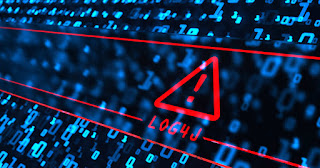What is DNSSEC and Why Is It Significant?
Assuming you're similar to most organizations, you likely surrender your DNS goal to your ISP. In any case, as workers sidestep the VPN, and, surprisingly, more associations embrace direct web access, almost certainly, you have a DNS-vulnerable side.
So what steps might you at any point take to guarantee your perceivability stays liberated?
One straightforward and simple thing you can begin doing immediately is to mine your DNS information. Each time a program contacts a space name, it needs to contact the DNS server first. Since DNS demands go before the IP association, DNS resolvers log mentioned spaces no matter what the association's convention or port. That is a data mother lode! By simply checking DNS demands and resulting IP associations you will kill the vulnerable side and effectively gain better exactness and discovery of compromised frameworks and further develop your security perceivability and organization assurance.
In any case, shouldn't something be said about those annoying store-harming assaults, otherwise called DNS caricaturing?
DNS reserve-harming assaults find and afterward exploit weaknesses that exist in the DNS, to draw natural traffic away from a genuine server toward a phony one. This kind of assault is perilous on the grounds that the client can be diverted, and since the assault is on the DNS server, it will influence an exceptionally enormous number of clients.
Back in the mid-nineties, the period of the internet, Sony Discmans, and beepers (we've made some amazing progress kids!), the Web Designing Team, or IETF began contemplating ways of making DNS safer. The team proposed ways of solidifying DNS and in 2005, Area Name Framework Security Expansions, also known as DNSSEC, was officially presented.
DNS Security Expansions, otherwise called DNSSEC, is an innovation that was created to, in addition to other things, safeguard against [cache poisoning] assaults by carefully 'marking' information so you can be guaranteed [the DNS answer] is substantial. DNSSEC utilizes cryptographic marks like utilizing GPG to sign an email; it demonstrates both the legitimacy of the response and the character of the endorser. Extraordinary records are distributed in the DNS permitting recursive resolvers or clients to approve marks. There is no focal testament authority, rather parent zones give authentication hash data in the appointment considering verification of legitimacy.
Cisco Umbrella presently upholds DNSSEC by performing approval on questions sent from Umbrella resolvers to upstream specialists. Clients can have the certainty that Cisco Umbrella is shielding their association from store-harming assaults, without performing approval locally.
Cisco Umbrella conveys the best, generally solid, and quickest web insight to each and every one of our in excess of 100 million clients. We are the main supplier of organization security and DNS administrations, empowering the world to associate with the web with certainty on any gadget.




Комментарии
Отправить комментарий